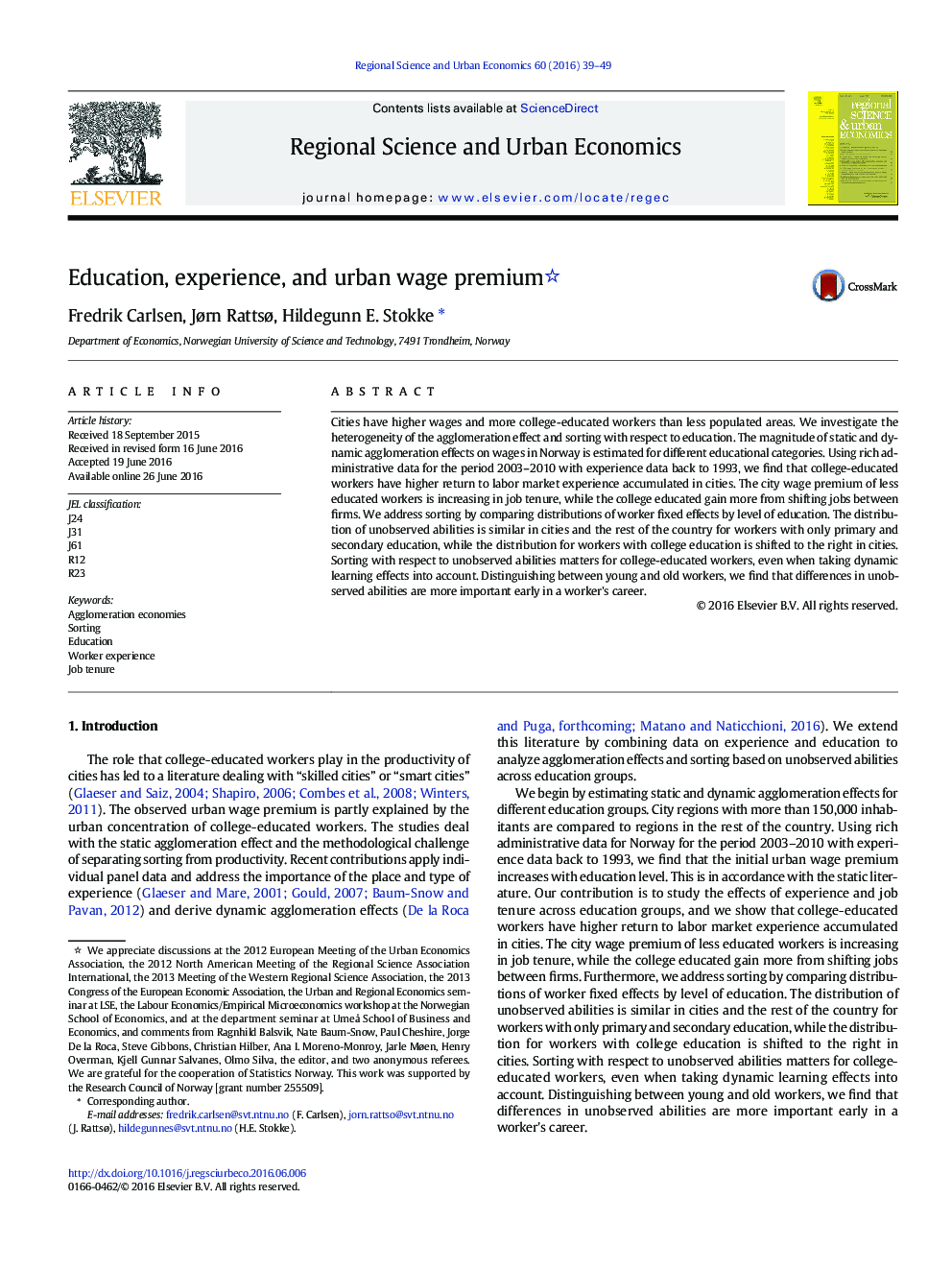| Article ID | Journal | Published Year | Pages | File Type |
|---|---|---|---|---|
| 983627 | Regional Science and Urban Economics | 2016 | 11 Pages |
•College-educated workers have higher return to experience accumulated in cities.•The city wage premium of less educated workers increases with job tenure.•The city wage premium of college-educated workers increases with job change.•Sorting on unobserved abilities is driven by the college educated.•Differences in unobserved abilities are more important early in a worker's career
Cities have higher wages and more college-educated workers than less populated areas. We investigate the heterogeneity of the agglomeration effect and sorting with respect to education. The magnitude of static and dynamic agglomeration effects on wages in Norway is estimated for different educational categories. Using rich administrative data for the period 2003–2010 with experience data back to 1993, we find that college-educated workers have higher return to labor market experience accumulated in cities. The city wage premium of less educated workers is increasing in job tenure, while the college educated gain more from shifting jobs between firms. We address sorting by comparing distributions of worker fixed effects by level of education. The distribution of unobserved abilities is similar in cities and the rest of the country for workers with only primary and secondary education, while the distribution for workers with college education is shifted to the right in cities. Sorting with respect to unobserved abilities matters for college-educated workers, even when taking dynamic learning effects into account. Distinguishing between young and old workers, we find that differences in unobserved abilities are more important early in a worker's career.
